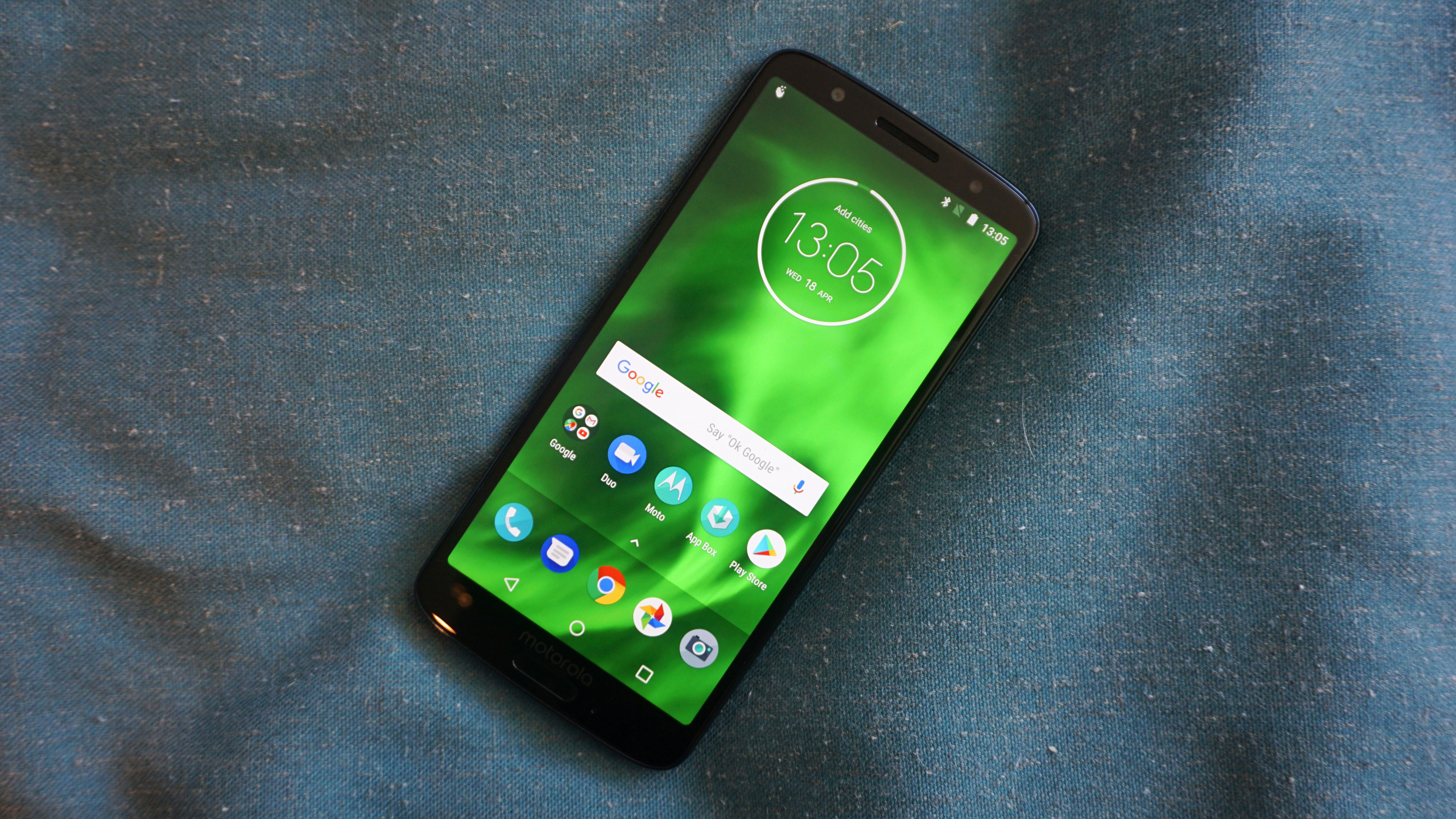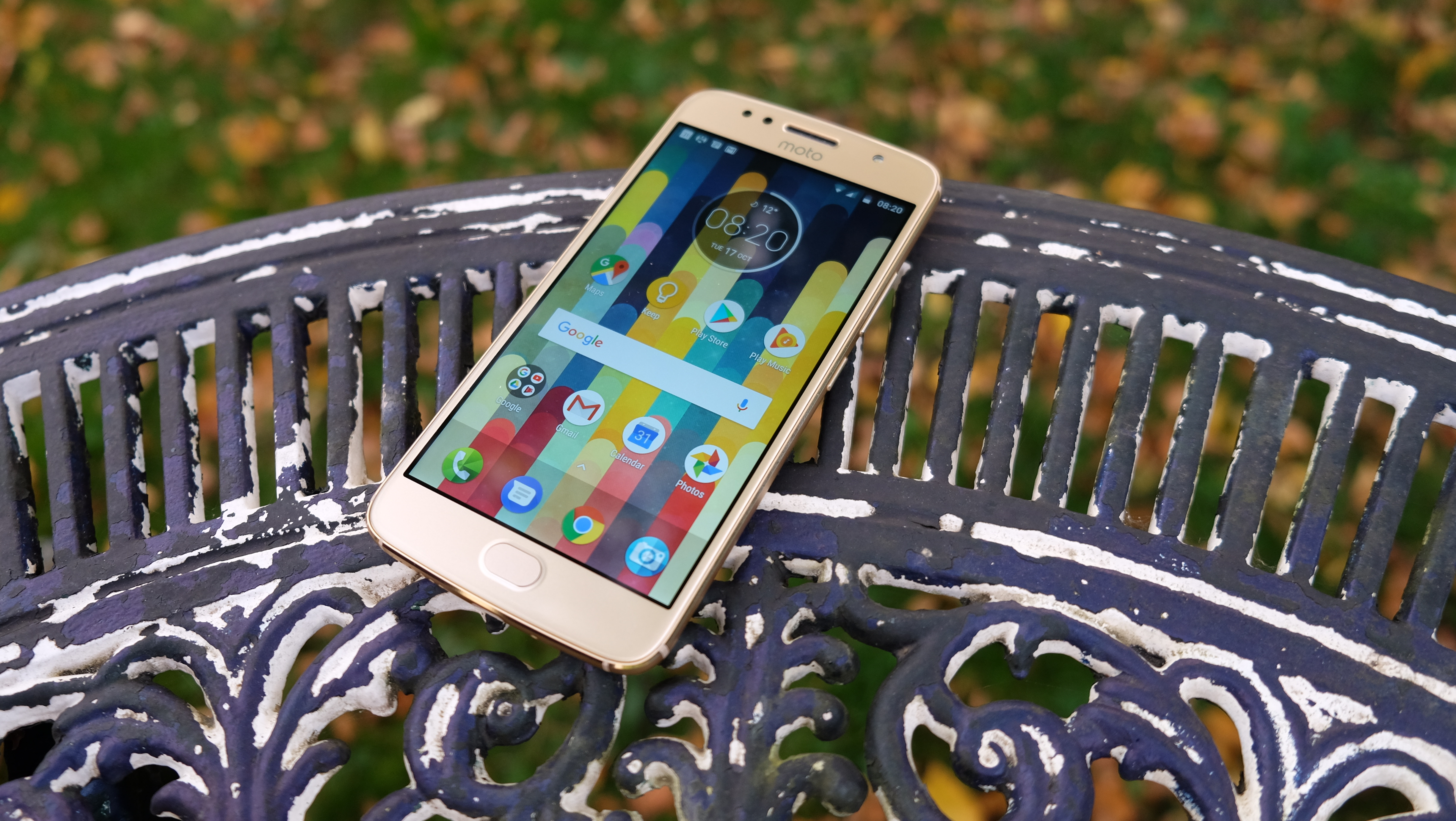Moto G6 vs Moto G5S: what's changed in Motorola's best-selling smartphone?
A budget battle

Sign up for breaking news, reviews, opinion, top tech deals, and more.
You are now subscribed
Your newsletter sign-up was successful
The Moto G range has for years been providing solid smartphones at excellent value and the brand-new Moto G6 looks at first glance to be no exception.
In fact, it's Motorola's best selling phone range ever, so it's no wonder we've got the seventh generation 'G' branded handsets.
We’ll be putting it through a full review to find out for sure, but if you just want to know how it compares to the Moto G5S we’ve got you covered.
From the design to the screen, specs, camera and everything else important, here’s a rundown of the key similarities and differences between the new Moto G and the old one.
- Motorola's new phones: Moto G6 | Moto G6 Plus | Moto G6 Play | Moto E5 Plus | Moto E5 Play
Moto G6 vs Moto G5S design
The Moto G6 has a rounded glass back, giving it a feel not unlike the Samsung Galaxy S7. It’s a big change from the metal shell of the Moto G5S, and arguably comes across as higher-end, given that glass appears to be the current material of choice among flagships.
The design in both cases is otherwise fairly plain, with the expected Motorola logo on the back and a fingerprint scanner below the screen on the front.

As for the dimensions, the Moto G6 comes in at 153.8 x 72.3 x 8.3mm, while the Moto G5S is 150 x 73.5 x 9.5mm, so the new phone is longer but not as wide or thick.
Sign up for breaking news, reviews, opinion, top tech deals, and more.
The Moto G6 is heavier at 167g (to the G5S’s 157g), but that’s no surprise since the G6 also has a larger screen.
Both phones are also resistant to splashes but aren’t properly waterproof, so you should avoid getting them wet as much as possible.
Moto G6 vs Moto G5S display
The Moto G6 has a 5.7-inch Full HD+ LCD display with an aspect ratio of 18:9 – that being the longer, thinner aspect ratio many recent phones have adopted.
It’s reasonably large then and quite sharp too, though at 1080 x 1920 the Moto G5S has a similar resolution. The G5S is a lot smaller though at 5.2 inches and it sticks with a more old fashioned 16:9 aspect ratio.

It’s a phone that you should more comfortably be able to use with one hand then, but the extra space on the Moto G6 should help bring videos, apps and games to life.
Whether the screen quality has improved for the Moto G6 is unclear so far, so whether it’s got a better display could largely come down to how big a screen you want, and how wide you want it to be.
Moto G6 vs Moto G5S OS and power
Neither of these phones are powerhouses, but you get a bit more oomph with the Moto G6 and its 1.8GHz octa-core Snapdragon 450 chipset than the Moto G5S and its 1.4GHz octa-core Snapdragon 430.
You also potentially get more RAM with the Moto G6, as it comes in both 3GB and 4GB varieties, while the Moto G5S comes in just a 3GB version.

Similarly, the G6 comes in two different storage capacities: 32GB and 64GB, while the Moto G5S is only available with 32GB, though both phones have a microSD card slot.
As for the operating system, the Moto G6 runs Android 8 Oreo, so it’s on the latest version of the OS, while the Moto G5S is a version behind as it’s running Android 7 Nougat.
An update to Oreo is expected at some point, but the G5S probably won’t be supported with updates for as long as the Moto G6.
Moto G6 vs Moto G5S camera and battery
The camera looks to be one of the most significant differences between the Moto G5S and the Moto G6, as the Moto G6 has a dual-lens rear camera, while the G5S has just a single-lens one.
The two lenses on the Moto G6 are 12MP and 5MP, and they have an f/1.8 aperture, while on the Moto G5S you get a 16MP f/2.0 lens.
The Moto G6 also seemingly improves on the video recording skills of the Moto G5S, as it can record 1080p footage at 60fps, while the Moto G5S is capped at 30fps.

Around the front, the Moto G6 has an 8MP camera, while the Moto G5S has a 5MP one.
There doesn’t appear to be much difference in their batteries though, as both phones have 3,000mAh ones.
If anything, the Moto G6 might not therefore last as long as the G5S, since it has a bigger screen to power. Motorola hasn’t given specific stats for the G6 but has said it should offer ‘all-day’ life, while in our own tests the Moto G5S could feasibly last up to two days. Both phones have fast charging though.
Moto G6 vs Moto G5S price
The Moto G6 is set to start at £219 / $249 (about AU$320) for the 3GB of RAM version with 32GB of storage.
In the UK there will also be an Amazon exclusive version with 4GB of RAM and 64GB of storage for £239, but it’s not clear if this will hit the US and Australia or how much it will cost there.
The G6’s starting price is the same as what the Moto G5S launched at, but you can now get that phone for less, especially in the UK, where it’s dropped to around £180 in some stores.
In Australia you’ll still pay around AU$320 though, and the Moto G5S isn’t available in the US.
Takeaway
On paper, the Moto G6 looks to be an upgrade in many ways, thanks to more power, more storage and an extra camera lens.
The battery size hasn’t changed though, and actual life might be worse, though you’ll have to wait for our full review to know for sure.
The changes to the screen and design meanwhile are more subjective. If you want a big, glass phone the Moto G6 is the right choice, if you prefer something more compact or more metal then the Moto G5S is the obvious option.
The G5S is also cheaper – at least in the UK, where you can pick it up for around £40 less. In the US, the G6 is your only option out of these two, though you may want to also check out the Moto G6 Play.
- Motorola's new phones: Moto G6 | Moto G6 Plus | Moto G6 Play | Moto E5 Plus | Moto E5 Play
James is a freelance phones, tablets and wearables writer and sub-editor at TechRadar. He has a love for everything ‘smart’, from watches to lights, and can often be found arguing with AI assistants or drowning in the latest apps. James also contributes to 3G.co.uk, 4G.co.uk and 5G.co.uk and has written for T3, Digital Camera World, Clarity Media and others, with work on the web, in print and on TV.